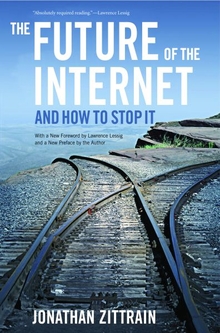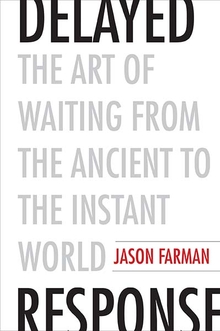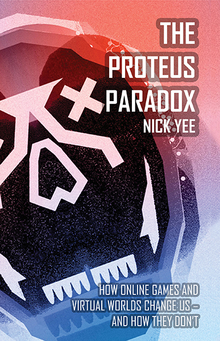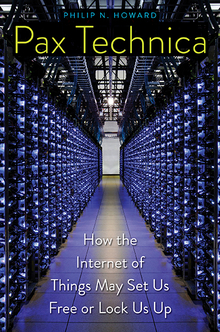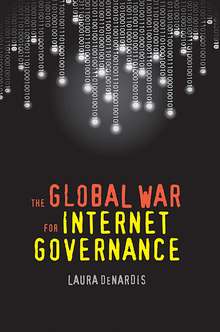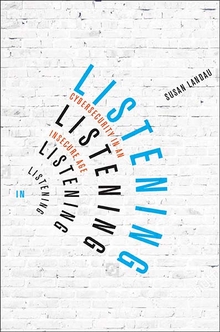The Future of the Internet--And How to Stop It
WARNING
You are viewing an older version of the Yalebooks website. Please visit out new website with more updated information and a better user experience: https://www.yalebooks.com
Jonathan Zittrain
The Internet is primed for a meltdown—and the most obvious cures are just as bad
This extraordinary book explains the engine that has catapulted the Internet from backwater to ubiquity—and reveals that it is sputtering precisely because of its runaway success. With the unwitting help of its users, the generative Internet is on a path to a lockdown, ending its cycle of innovation—and facilitating unsettling new kinds of control.
IPods, iPhones, Xboxes, and TiVos represent the first wave of Internet-centered products that can’t be easily modified by anyone except their vendors or selected partners. These “tethered appliances” have already been used in remarkable but little-known ways: car GPS systems have been reconfigured at the demand of law enforcement to eavesdrop on the occupants at all times, and digital video recorders have been ordered to self-destruct thanks to a lawsuit against the manufacturer thousands of miles away. New Web 2.0 platforms like Google mash-ups and Facebook are rightly touted—but their applications can be similarly monitored and eliminated from a central source. As tethered appliances and applications eclipse the PC, the very nature of the Internet—its “generativity,” or innovative character—is at risk.
The Internet’s current trajectory is one of lost opportunity. Its salvation, Zittrain argues, lies in the hands of its millions of users. Drawing on generative technologies like Wikipedia that have so far survived their own successes, this book shows how to develop new technologies and social structures that allow users to work creatively and collaboratively, participate in solutions, and become true “netizens.”
He performed the first large-scale tests of Internet filtering in China and Saudi Arabia, and as part of the OpenNet Initiative co-edited a series of studies of Internet filtering by national governments: Access Denied: The Practice and Policy of Global Internet Filtering; Access Controlled: The Shaping of Power, Rights, and Rule in Cyberspace; and Access Contested: Security, Identity, and Resistance in Asian Cyberspace.
He is a member of the Board of Directors of the Electronic Frontier Foundation and the Board of Advisors for Scientific American. He has served as a Trustee of the Internet Society, and as a Forum Fellow of the World Economic Forum, which named him a Young Global Leader, and as Distinguished Scholar-in-Residence at the Federal Communications Commission, where he previously chaired the Open Internet Advisory Committee.
Read an extended question & answer discussion with the author.
Visit the author's website, www.jz.org.
Read and comment on the entire book online at Yale Books Unbound.
Watch Jonathan Zittrain's book preview and talk at the Tribeca Grand, NYC.
“This book is fundamental. It will define the debate about the future of the Internet, long after we haven't stopped it. Absolutely required reading.”—Lawrence Lessig, Professor, Stanford Law School, and author of Free Culture and The Future of Ideas
"This remarkably researched and highly entertaining book is a must-read for all who take the ubiquitous nature of the Internet in our everyday lives for granted. The future of the internet is NOT a positive one, unless we all work collaboratively to ensure its lasting success. Zittrain’s analysis is first-class and should be widely heeded by leaders from all sectors of society."—Dr. Klaus Schwab, Executive Chairman and Founder of the World Economic Forum
“The most compelling book ever written on why a transformative technology's trajectory threatens to stifle that technology's greatest promise for society. Zittrain offers convincing road maps for redeeming that promise.”—Laurence H. Tribe, Carl M. Loeb University Professor and Professor of Constitutional Law, Harvard Law School
“Jonathan Zittrain does what no one has before—he eloquently and subtly pinpoints the magic that makes Wikipedia, and the Internet as a whole, work. The best way to save the Internet is to turn off your laptop until you've read this book.”—Jimbo Wales, Founder, Wikipedia
“A superb and alarming discussion, from one of the most astute and forward-looking analysts of the Internet. Zittrain explains how the glorious promise of the Internet might not be realized—and points the way toward reducing the current risks. Absolutely essential reading."—Cass Sunstein, Karl N. Llewellyn Distinguished Service Professor of Jurisprudence, The University of Chicago Law School, and co-author of Nudge: Improving Decisions About Health, Wealth, and Happiness
Publication Date: March 17, 2009
6 b/w illus.

